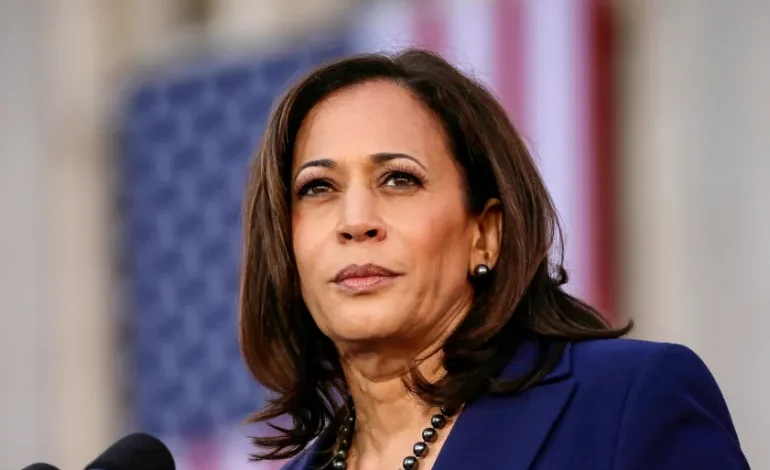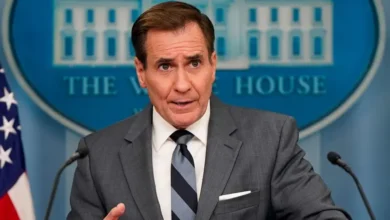Can Kamala Harris help Democrats regain lost Black votes?

Barely a week after President Joe Biden dropped out from the US presidential race, his deputy Kamala Harris emerged as the top contender to get the Democratic nomination following a string of endorsements from senior party leaders, including former President Barack Obama.
Other prominent Democrats who have thrown their weight behind Harris, 59, include House Minority Leader Hakeem Jeffries, former House Speaker Nancy Pelosi, and Senate Majority Leader Chuck Schumer.
If confirmed as the Democratic Party’s official presidential nominee, Harris, a former California prosecutor, could potentially become the first woman – and the first African American-Indian candidate – to make it to the White House.
On Tuesday Harris picked Tim Walz, the governor of Minnesota, as her running mate.
Recent opinion polls suggested that Biden has been losing Black voters. In the 2020 elections, 87 percent of Black voters opted to support Biden. But in May this year, a Pew Research Poll of Black voters found that only 77 percent indicated that they would choose Biden over Republican nominee Donald Trump for president in this year’s elections.
So, can Kamala Harris turn this downward trend around before the November election if she is confirmed as the Democratic candidate?
What is the history of Black voter support for the Democratic Party?
Support for the Democrats has traditionally been high among Black voters, reaching a high of 95 percent during Obama’s tenure in 2008.
Since Franklin D Roosevelt won the presidency in 1932, the Democratic Party has received the majority of Black votes. While there is no data for 1932, according to the Joint Center for Political and Economic Studies, Roosevelt gained 71 percent of the Black vote for his presidency in 1936.
In the early 1930s, Black communities strongly supported Roosevelt’s New Deal programmes which attempted to address the economic and racial issues and reduce inequalities in the wake of the Great Depression.
The Works Progress Administration (WPA), Public Works Administration (PWA) and other programmes provided jobs for millions of Americans, including African Americans and employment rates rose.
How has Black support for Democrats fluctuated over the decades?
In the 1964 presidential election, Lyndon B Johnson received 94 percent of the Black vote due to his strong advocacy of civil rights legislation which eventually led to the passing of the Civil Rights Act of 1964.
Although voting rights for the African American population were granted under Republican Abraham Lincoln back in 1870 as part of the 15th Amendment, it was Johnson who enforced the rights by addressing racial discrimination in the voting process.
How many Black people are likely to vote Trump?
In the recent Pew Research poll, 18 percent of Black registered voters said they were leaning towards a vote for Trump.
That represents a 50 percent increase from the 12 percent of Black votes Trump received in the 2020 election.
However, there appears to be a significant increase of support among Black voters for Trump, according to some polls, since Harris has entered the presidential race.










